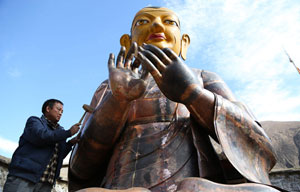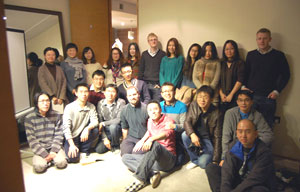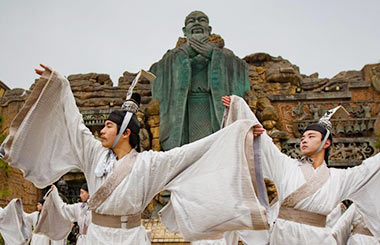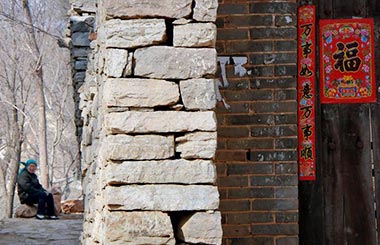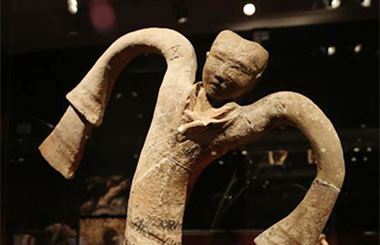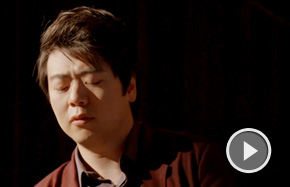Guarding the legacy of emperors
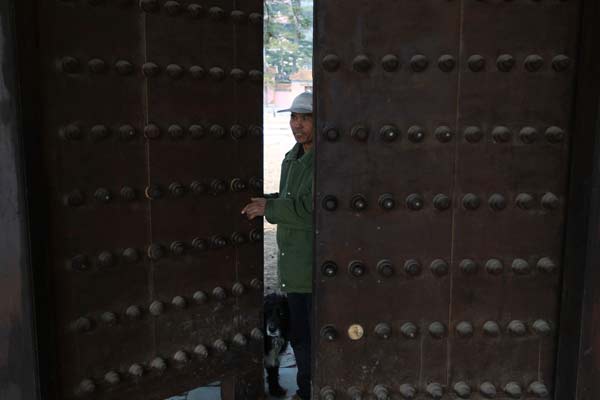 |
|
Liu Yanliang, a keeper of the Kangling Mausoleum, one of the tombs of the Royal Mausoleum of Ming, patrols the grounds last month. |
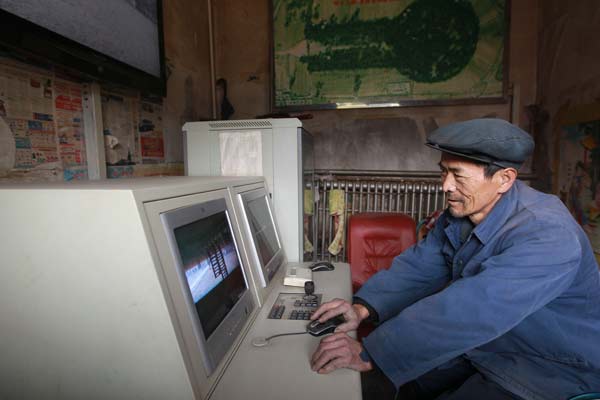 |
|
Qi Zhenxiang, a keeper of the Yongling mausoleums, can watch the site on a computer. Cui Meng / China Daily |
A dedicated few in Beijing's suburbs keep a lookout for tomb raiders, day and night
It was a clear day in March, and the air was still cold on this morning of early spring in Beijing.
Li Jianzhong, a 54-year-old keeper of the Yongling Mausoleum, was walking along a path as usual, checking to see if there was any problem or threat in the mausoleum.
The mausoleum, in which Emperor Jiajing of the Ming Dynasty (1368-1644) and his three empresses were buried, was empty, except for several researchers - college students guided by their archeology professor. Like most of other tombs of the Royal Mausoleum of Ming, Yongling Mausoleum is not open to the public.
For the past three years, Li has been guarding the tomb with his two colleagues recruited by the Ming Tombs Special Administration. They work in shifts to ensure the tomb is monitored 24 hours a day.
On a regular day, he would spend about half an hour patrolling around the mausoleum, and make seven or eight trips every day.
"Our duty is to guard the mausoleum against thieves and fire," Li said. "We also have to keep the site tidy."
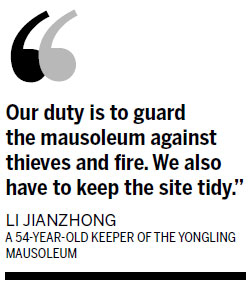
Li has not encountered any thieves, thanks to strict protection measures of the Ming Tombs Special Administration. But fire is a more dangerous hazard. Any fire is forbidden, he said.
"No one is allowed to smoke in the mausoleum," he added.
More measures to guard against fire are taken from October until May, as the weather is dry during this time around Beijing, he said.
"We usually start to cut off grass at the mausoleum and nearby at the end of September, as it can catch fire easily," he said.
To remove the grass, usually as high as one meter and growing amid the gaps of bricks and stones, is never easy. It often takes days to finish the work, he said.
"This is the most tiring part for us," he said, noting that in general, the work is not very hard.
"But sometimes it is a little lonely, feeling cut off from the outside world."
Modern technology has also made the work of the keepers much easier.




